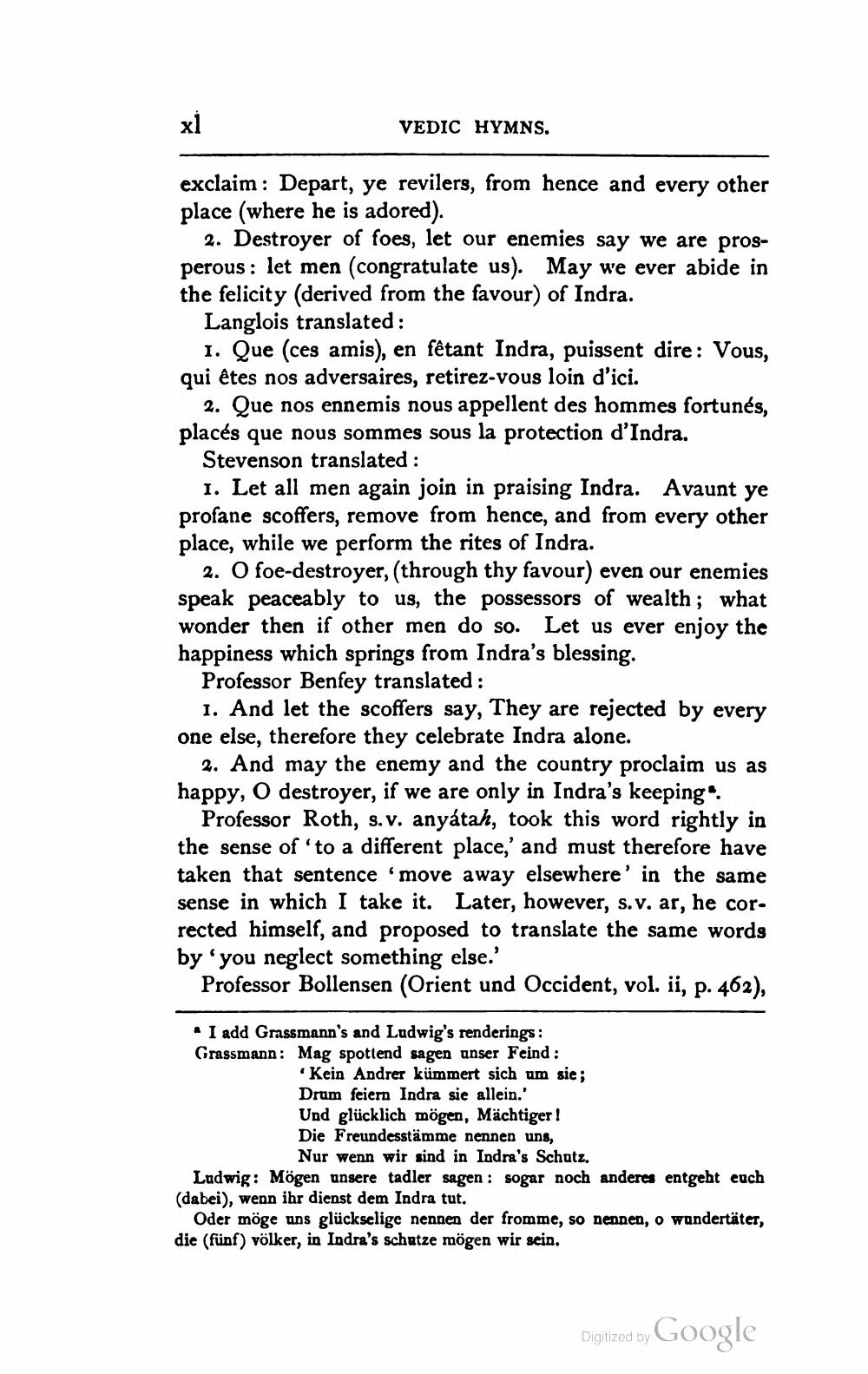________________
VEDIC HYMNS.
exclaim: Depart, ye revilers, from hence and every other place (where he is adored).
2. Destroyer of foes, let our enemies say we are prosperous : let men (congratulate us). May we ever abide in the felicity (derived from the favour) of Indra.
Langlois translated :
1. Que (ces amis), en fêtant Indra, puissent dire: Vous, qui êtes nos adversaires, retirez-vous loin d'ici.
2. Que nos ennemis nous appellent des hommes fortunés, placés que nous sommes sous la protection d'Indra.
Stevenson translated :
1. Let all men again join in praising Indra. Avaunt ye profane scoffers, remove from hence, and from every other place, while we perform the rites of Indra.
2. O foe-destroyer, (through thy favour) even our enemies speak peaceably to us, the possessors of wealth; what wonder then if other men do so. Let us ever enjoy the happiness which springs from Indra's blessing.
Professor Benfey translated :
1. And let the scoffers say, They are rejected by every one else, therefore they celebrate Indra alone.
2. And may the enemy and the country proclaim us as happy, O destroyer, if we are only in Indra's keeping
Professor Roth, s.v. anyátah, took this word rightly in the sense of to a different place,' and must therefore have taken that sentence 'move away elsewhere in the same sense in which I take it. Later, however, s.v. ar, he cor. rected himself, and proposed to translate the same words by 'you neglect something else.'
Professor Bollensen (Orient und Occident, vol. ii, p. 462),
• I add Grassmann's and Ludwig's renderings: Grassmann: Mag spottend sagen anser Feind :
Kein Andrer kümmert sich um sie; Drum feiern Indra sie allein.' Und glücklich mögen, Mächtiger! Die Freundesstämme nennen uns,
Nur wenn wir sind in Indra's Schutz, Ludwig: Mögen unsere tadler sagen : sogar noch anderes entgeht euch (dabei), wenn ihr dienst dem Indra tut.
Oder möge uns glückselige nennen der fromme, so nennen, o wundertäter, die (fünf) völker, in Indra's schatze mögen wir sein.
Digitized by Google




